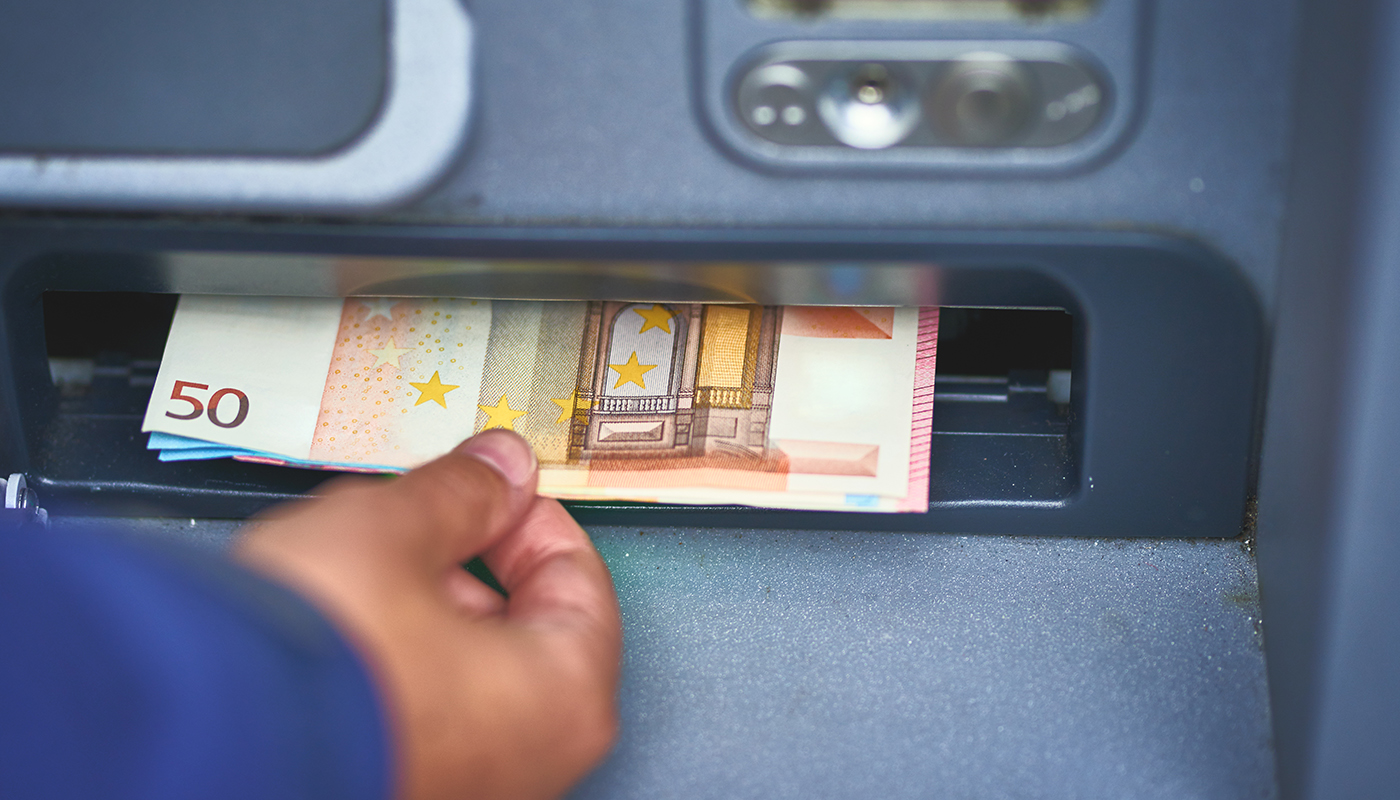4 Tips for Using Your Credit Card Abroad
Understanding foreign transaction fees, exchange rates, dynamic currency conversion and card issuer policies can save you money on the go.
 iStock
iStock
From the airport lounge to the beachside ATM, it’s important to know the policies and saving opportunities your credit card company offers. With some simple research and the right credit card, you can save on travel expenses. Sometimes, it’s as easy as knowing which options to select at the ATM.
For peace of mind, follow these tips for handling foreign currency, transaction fees and general cardholder concerns you may encounter during international travel.
1. Understand foreign transaction fees for credit cards.
What is a foreign transaction fee? It’s the surcharge that you get assessed when your purchase passes through a foreign bank or is in a currency other than the U.S. dollar. This fee typically ranges from 1% to 3% of the cost of your purchase.
It sounds like a raw deal, and many ask if there is a way to use a credit card without paying foreign transaction fees. The answer is yes—there are some no-foreign transaction fee credit cards available.
After you’ve chosen your card, here are some things to consider before you travel abroad:
- Know that your bank may have international partners. Some credit card companies collaborate with foreign banks so their customers will encounter fewer fees during international travel.
- Before you head out, exchange your currency. You may be able to avoid conversion fees if you convert money at a bank in your home country.
- Compare available credit cards to debit card options. In addition to no-foreign transaction fee credit cards, there are also debit cards that can help you avoid foreign transaction fees during cash withdrawals.
Follow these tips for picking out a travel credit card.
Learn More2. Include exchange rates in your travel plans.
While the numbers may change daily, the meaning remains the same. Merriam-Webster defines exchange rate as “the ratio at which the principal unit of two currencies may be traded.”
"For example, the exchange rate for U.S. dollars to euros in late July 2022 was 0.98. This means that, in that window of time, it took $1.02 to buy 1 euro. But the next month, the exchange rate was 1.00, meaning it took $1 to buy 1 euro."
As you can see, the exchange rate is not a fixed number and could change from the time you start planning your trip to the day you arrive at your destination.
Be sure to budget for expenses with the latest exchange rate in mind. When it’s time to withdraw local currency, avoid using the services of airport lounges, train stations or ferry ports. Their currency exchange rates will almost always be inflated. However, you can usually get a fair rate from an ATM.
 iStock
iStock
3. Understand dynamic currency conversion.
It sounds like something you might need an economics degree to navigate. But it’s actually as easy as the push of a button.
Simply defined, dynamic currency conversion (DCC) allows you to make credit card purchases with the currency of your home country when you’re abroad. While this may seem appealing—as it seems you’d know more clearly how much you’re spending at the point of sale—it’ll actually cost you more.
In using DCC, you’ll almost always run into steep currency conversion fees and unfavorable exchange rates that make the service tough on your wallet.
How do you avoid DCC? When making any card transaction or a withdrawal from an ATM, you’ll be given the option to use DCC. Reject this option. Instead, opt to charge your card in the local currency.
4. Know your credit card company’s policies, travel rewards and customer service phone number.
Educate yourself about your credit card company’s policies. This will help you understand what charges may be in store. And, more excitingly, this will keep you informed of any rewards points, as the best credit cards will help you rack up on travel rewards with cash back and other perks—not to mention they’ll offer robust fraud protection. Speak with an expert at your credit card company, as you may be eligible for their member discounts on travel insurance.
There are only so many days in a vacation, and it would be a shame to spend any of them working with your card issuer to unlock your account. Call your issuer ahead of your trip so you don’t have to skip the boat tour, for example, in order to make that call.
You’ll also discover that the best credit card companies offer travel and emergency assistance services. Learn about the ways they could potentially aid you in coordinating medical, legal and travel services while you’re away from home.
Just remember, with the right rewards credit card, there are plenty of perks and travel protections that can help make your trip as memorable as possible.